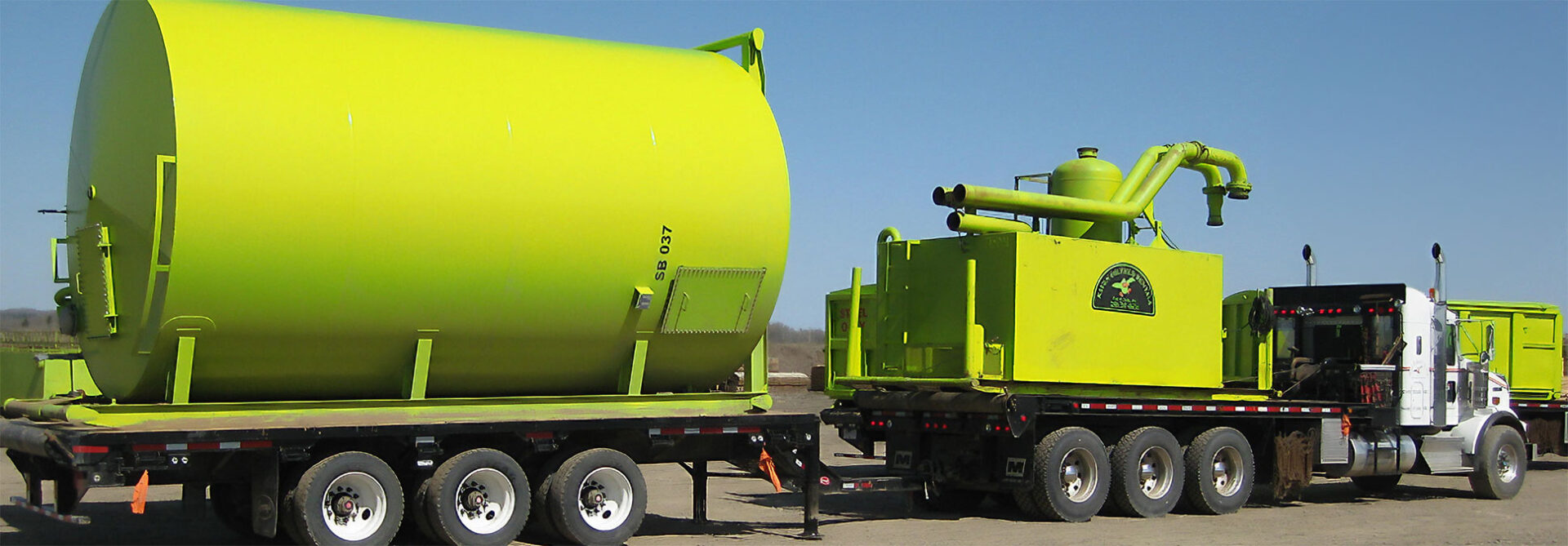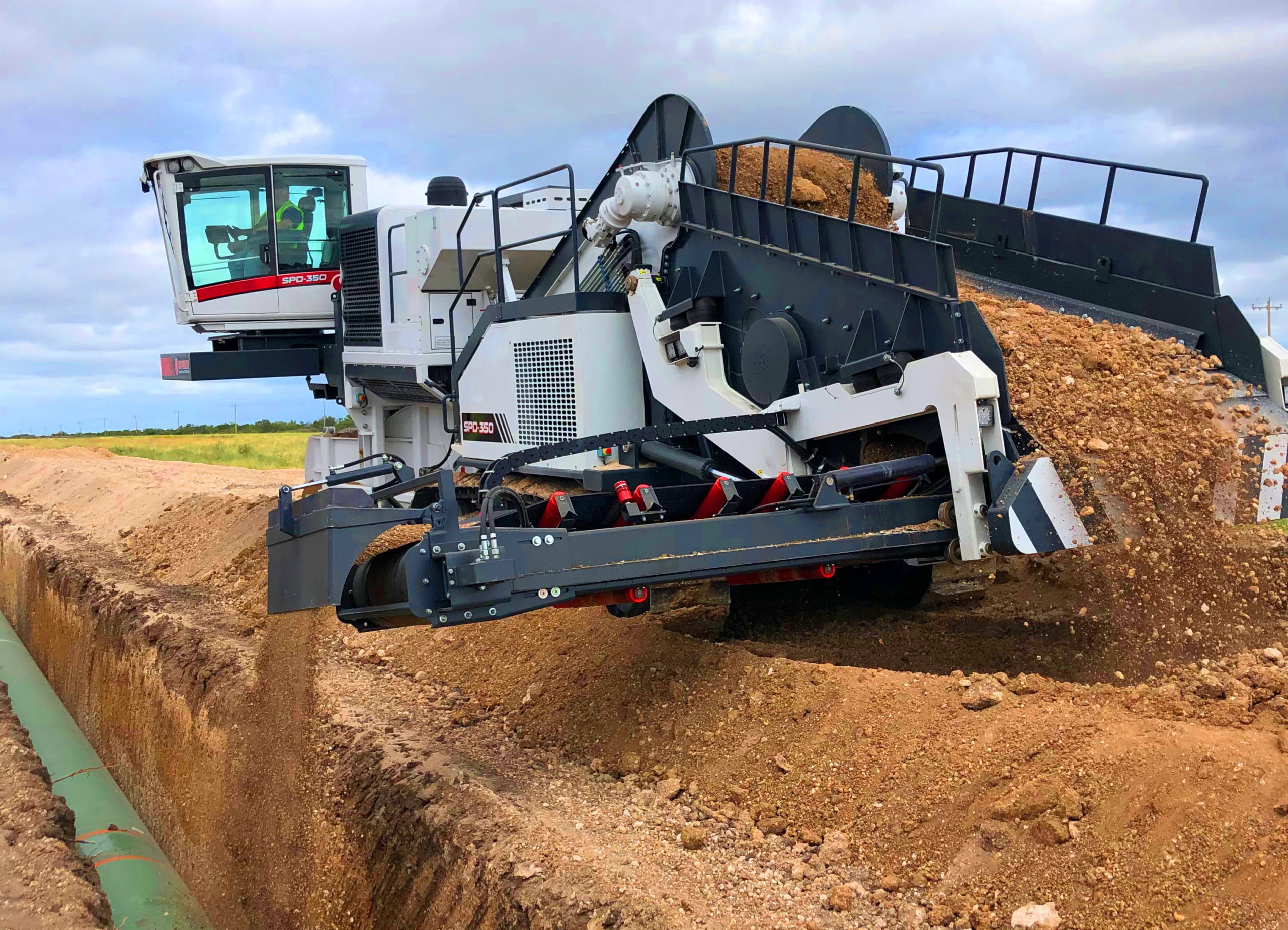A Comprehensive Overview to the Different Kinds Of Oil Field Equipment and Pipeline Equipment Available
The oil and gas industry counts heavily on specialized devices for reliable extraction and transport. Various types of equipment, from drilling rigs to tank, play crucial functions in this complex procedure. Each item of tools serves unique features that contribute to general functional success. Understanding these elements is important for any person associated with the market. As the sector develops, so also do the technologies that support it. What improvements are on the perspective?

Drilling Rigs: The Backbone of Oil Exploration
Drilling rigs function as the important equipment in the domain of oil expedition, allowing companies to accessibility hydrocarbon reserves hidden deep below the Planet's surface. These rigs can be found in various kinds, including land rigs, offshore rigs, and mobile devices, each developed to run in particular environments. Furnished with advanced modern technology, drilling rigs can pass through geological formations with precision, making certain effective source extraction. The architectural honesty and operational capacities of these rigs are crucial, as they need to withstand extreme problems and significant pressures. Moreover, the option of a drilling rig affects the total project expense and timeline, making it a vital consideration for oil firms looking for to optimize their exploration efforts and make the most of efficiency in their operations.
Pumps: Vital for Fluid Motion
In the oil extraction process, the role of pumps is considerable, assisting in the motion of fluids throughout different stages of production. Pumps are important for carrying unrefined oil, water, and other liquids from underground reservoirs to the surface area and after that via pipes to refineries. They are available in different types, including centrifugal, favorable variation, and submersible pumps, each serving specific objectives based upon the fluid qualities and functional requirements. Centrifugal pumps are commonly made use of for their performance in high-flow applications, while favorable displacement pumps excel in handling thick fluids. The option of pump impacts total performance, operational safety, and upkeep costs. Correct choice and maintenance of pumps are essential for enhancing production and decreasing downtime in oil field procedures.
Shutoffs: Managing Flow and Pressure

Shutoffs play an important role in handling the circulation and stress of liquids within oil fields and pipelines. Various sorts of shutoffs offer distinctive applications, each designed to satisfy certain functions basic for reliable procedure - Superior Oilfield pipeline equipment rentals. Understanding the qualities and uses of these valves is vital for enhancing system efficiency and security
Kinds of Valves
Vital elements in oil field operations, valves play an important function in controlling the flow and stress of liquids within pipes and devices. Different sorts of valves are made use of to fulfill the varied requirements of oil and gas production. Common kinds consist of entrance valves, which provide a straight-line circulation and very little pressure drop; world shutoffs, understood for their throttling capabilities; and round shutoffs, acknowledged for their quick on/off control. Additionally, check shutoffs stop backflow, while butterfly valves offer a light-weight option for regulating flow. Each shutoff type is designed with details products and setups to endure the harsh problems usually discovered in oil fields, making certain dependability and effectiveness in procedures. Comprehending these types is critical for efficient system management.
Valve Applications and Features
While different types of valves serve distinct objectives, their main applications rotate around managing circulation and pressure within oil and gas systems. Shutoffs such as entrance, globe, and ball shutoffs control liquid motion, making sure peak performance and safety and security. Entrance valves are commonly used for on/off control, providing very little circulation resistance. Globe valves, on the other hand, offer specific flow policy, making them ideal for strangling applications. Sphere shutoffs are preferred for their fast operation and limited securing abilities. On top of that, stress safety valve are critical for stopping system overpressure, guarding equipment stability. Generally, the ideal Web Site option and application of valves enhance operational effectiveness, making sure the reliable transport of oil and gas through pipelines and processing facilities.
Compressors: Enhancing Gas Transport
Compressors play an important function in the effective transportation of all-natural gas, making sure that it relocates efficiently with pipes over long distances. These gadgets enhance the pressure of natural gas, allowing it to conquer friction and elevation changes within the pipeline system. In addition, compressors promote the harmonizing of supply and need, suiting changes in usage and production rates. Various kinds of compressors are used in the sector, consisting of centrifugal, reciprocating, and rotary screw compressors, each offering distinct advantages based upon the operational requirements. Regular upkeep of these compressors is important to make best use of performance and lessen downtime, eventually adding to a reputable gas transportation network. Their critical feature highlights the significance of compressors in the overall oil and gas framework.
Storage Tanks: Safe and Effective Fluid Administration
Reliable transport of gas relies upon various support group, one of which is the correct administration of tank. These tanks play a crucial function in safely having fluids, making certain that operational performance is preserved while decreasing environmental threats. Built from durable materials, they are made to endure high stress and corrosive aspects. Correctly sized and tactically situated, storage containers promote the smooth flow of all-natural gas and various other fluids, stopping traffic jams in supply chains. Regular maintenance and tracking are essential to identify leaks or structural concerns, advertising safety and compliance with governing standards. Eventually, the reliable management of storage tanks is essential for the general integrity and dependability of the oil and gas sector's liquid handling systems.
Pipeline Systems: Infrastructure for Transportation
Pipeline systems serve as the backbone of the oil pump jack scaffolding and gas market, assisting in the effective transport of hydrocarbons over large distances. These systems contain different elements, including pipes, valves, pumps, and compressors, all carefully developed to guarantee seamless flow. The materials used in pipeline construction, commonly steel or high-density polyethylene, are picked for durability and resistance to corrosion. Pipeline networks can span throughout land and water, attaching manufacturing sites to refineries and distribution centers. In addition, progressed innovation enables real-time monitoring of circulation rates and pressure degrees, improving operational performance. The critical placement of these pipelines decreases ecological impact while optimizing resource accessibility, therefore playing a crucial function in conference power demands around the world.
Security Equipment: Ensuring Employee and Environmental Protection
The procedure of pipeline systems, while vital for power transportation, additionally provides substantial security challenges for workers and the setting. Security tools plays a considerable duty in reducing these threats. Personal protective tools (PPE) such as helmets, handwear covers, and non-slip footwear safeguards workers from physical hazards. Furthermore, gas discovery systems keep track of for leakages, guaranteeing that harmful compounds do try this web-site not posture a risk to employees or the surrounding ecological community. Emergency shutdown systems are necessary for quickly stopping procedures throughout a dilemma, protecting against potential calamities. Spill containment materials, consisting of absorbents and barriers, are essential for lessening ecological impact. In general, purchasing comprehensive safety devices is critical for preserving functional honesty and protecting both workers and the atmosphere in the oil and gas market.

Regularly Asked Concerns
How Do I Pick the Right Oil Field Equipment for My Job?
Picking the ideal oil field tools involves reviewing job requirements, budget restrictions, and functional requirements. Think about variables such as devices integrity, compatibility with existing systems, and the distributor's credibility to assure peak performance and safety.
What Are the Maintenance Demands for Oil Field Equipment?
Upkeep requirements for oil field devices consist of normal inspections, lubrication, and timely repair services. Operators needs to also stick to producer standards, screen performance metrics, and assurance compliance with security guidelines to improve durability and effectiveness.

Just How Can I Guarantee Conformity With Environmental Laws?
To assure compliance with environmental laws, companies must carry out routine audits, implement best methods, purchase training, maintain proper paperwork, and remain upgraded on legislation (Superior Oilfield Rentals). Partnership with ecological firms can additionally boost adherence to regulations
What Is the Average Lifespan of Pipeline Equipment?
The average life expectancy of pipeline devices normally varies from 20 to 50 years, depending upon aspects such as material high quality, environmental conditions, and maintenance practices. Regular evaluations can significantly influence longevity and operational effectiveness.
Exactly how Do I Safely Transfer Oil Field Equipment to Remote Locations?
Carrying oil field equipment to remote locations calls for mindful planning, including route assessment, securing permits, making use of ideal automobiles, and making sure security protocols are adhered to. Appropriate training and communication among staffs are crucial for effective transportation.